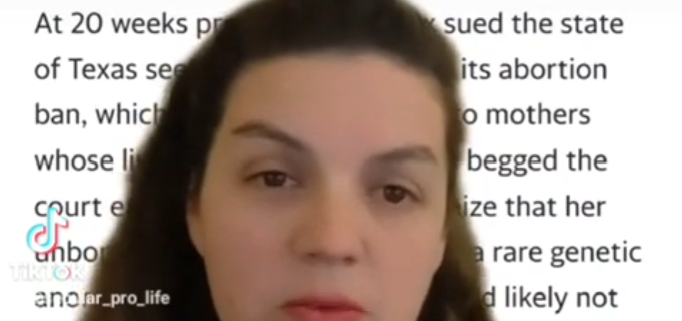Medical community, ableism, and Trisomy 18
Trisomy 18 ‘fatality’ ignores worth of born, living children with the condition
Important article for your consideration: “Texas woman seeking abortion argued Trisomy 18 is lethal. Michigan children prove it’s not.” The article profiles several families in Michigan with children with Trisomy 18. One such family is that of Jewel and her daughter, CC:
“CC is four years old. She loves lounging in the pool on summer days with her older siblings and rolling over for a back scratch while her favorite movie ‘Moana’ plays on the big screen…She enjoys jazzy music and flashy toys, and when she’s especially happy, she kicks her legs and rolls her tongue out just a bit.”
Passages like this are always bittersweet because you can hear the undercurrent of “Please see my child as cute enough, or happy enough, or worthy enough, of society’s consideration.” Unfortunately, the “please see my child as worthy” passages are necessary because society often doesn’t see their worthiness.
Trisomy 18 myths create a culture of abortion coercion
When Melissa Fox found out that her daughter had Trisomy 18 during her pregnancy, the doctor told her that he had never delivered a live Trisomy 18 baby, and he had a colleague who had one time, and that the baby was born with no bones. Please keep in mind (1) that doctors don’t always know what they are talking about; and very importantly, (2) that doctors are not impervious to prejudice, ableism, and superstition.
In Fox’s case, they assumed she’d get an abortion. In fact, the obstetrician called her in for an emergency appointment where she already filled out all of the paperwork, including electronically signing Fox’s name to it so that she could get an abortion in 24 hours. The doctor said, “I got your golden ticket, this is my gift to you.”
Fox was 32 weeks along when she realized they weren’t going to try to keep her baby alive. A neonatologist told her that it would be a waste of her team’s time and resources. And they wouldn’t give her a straight answer when she asked if they would mark her baby as “do not resuscitate” against her wishes. Same thing with the pediatric heart surgeon: she said she would not perform the curative surgery that she’s done for other babies because she didn’t want to risk her career, or ruin her center’s impressive survival statistics, trying to save a baby who was “destined to die.”
Medical professionals explain why Trisomy myths continue to linger
And yet Dr. Glen Green, who specializes in congenital syndromes, says that aggressively treating cardiac and pulmonary disease can keep Trisomy 18 babies alive for much longer than the medical community has long held true. Similarly, Dr. Collin Smith says even among physicians, “there’s a lot of misinformation about these outcomes.” He says clinicians should be providing these families with hope, and that’s easy to take away when they don’t have enough data, or really understand enough about the patient population.
Jennifer LoTiempo was 30 weeks along when she found out her son had Trisomy 18 and the doctor told her that the “baby would never take a breath outside of her.” In fact, Danny was born loudly crying. He didn’t seem to have all the defects the doctors had predicted and he’s now “a third grader whose friends push him down the hallways in his wheelchair.” His mother explains:
“We were told he would never know who we are, that he would never know love.” And yet, “That is the most loving kid…he just knows love and he just knows happiness and I wouldn’t trade a single second.”
Jennifer LoTiempo
Talks on Trisomy 18 (and other conditions) are always about living people
None of this is to suggest that Trisomy 18 is not a very serious condition: it is. But when we use phrases like “incompatible with life,” or “fatal,” or “lethal” fetal anomaly, we need to make sure we understand exactly what we’re talking about. Is it always true, is it sometimes true, is it only occasionally true? Does it depend on whether or not these children have access to the care and resources we give to other children?
We need to remember that when we’re having these discussions, they are not in the abstract, and they are not just about fetuses you’re reading about in politicized abortion cases: they are also about people who are already born, and their families and their loved ones who can hear how you are describing the value of their lives. Just something to keep in mind.
Today’s post was transcribed and edited by volunteer Virginia Pride! You can watch the original video by Monica Snyder below:



